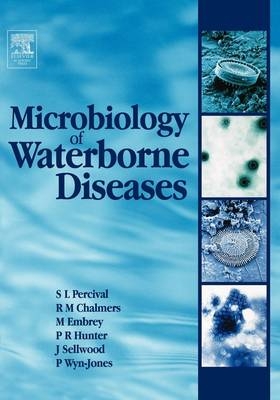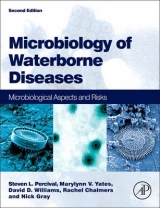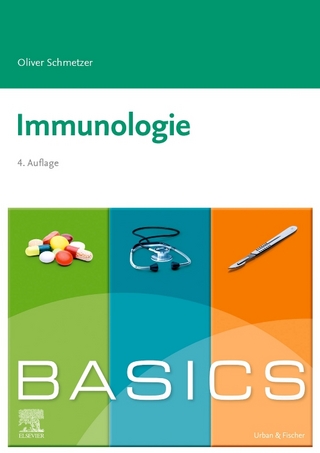
Microbiology of Waterborne Diseases
Academic Press Inc (Verlag)
978-0-12-551570-2 (ISBN)
- Titel erscheint in neuer Auflage
- Artikel merken
This comprehensive text describes the diseases associated with water, their causative agents and the ways in which they gain access to water systems. It also details the methods for detecting and identifying waterborne microorganisms, the ways in which they are removed from water, and the risks they present to water users. This handbook will serve as an indispensable reference for public health microbiologists, water utility scientists, research water pollution microbiologists environmental health officers, consultants in communicable disease control and microbial water pollution students.
Marylynn V. Yates is Professor of Environmental Microbiology and Distinguished Teaching Professor at the University of California, Riverside. She serves as Dean of the College of Natural and Agricultural Sciences, and is Chair of the University of California Global Health Institute's Education Committee. Dr. Yates holds a B.S. in Nursing from the University of Wisconsin, Madison, an M.S. in Chemistry from the New Mexico Institute of Mining & Technology, and a Ph.D. in Microbiology from the University of Arizona. Her research interests include characterizing and predicting the fate and transport of human enteric pathogenic microorganisms in soils, water, and wastewater; development of methods for rapid, sensitive detection of infective enteric viruses in water samples; human pathogen considerations associated with wastewater reuse and biosolids application to land; and the use of indicators for predicting pathogen occurrence and behavior in the environment. Dr. Yates serves as an editor for Applied & Environmental Microbiology, as a member of the Water Science & Technology Board of the National Research Council, and on the USEPA's Science Advisory Board Drinking Water Committee. She is a fellow of the American Association for the Advancement of Sciences, the American Academy of Microbiology, and a National Associate of the National Academies of Science. Professor Steven L. Percival holds a PhD in medical microbiology and biofilms, a BSc in Applied Biological Sciences, Postgraduate Certificate in Education, diploma in Business Administration, an MSc in Public Health and an MSc in Medical and Molecular Microbiology. He is also a fellow of the Institute of Biomedical Science and Institute of Biology. Early in his career, Steven held R&D positions for over 3 years at The British Textile Technology Group Plc, followed then by 6 years as a senior university lecturer in medical microbiology and later the positions of Chief Scientific Officer and Director of R and D at Aseptica, Inc., and senior clinical fellowships at the Centers for Disease Control, Atlanta, and Leeds Teaching Hospitals Trust, Leeds, United Kingdom. More recently, Steven held senior R&D manager positions at Bristol Myers Squibb, ConvaTec, Advanced Medical Solutions PLC and also held an honorary Professorship of Microbiology at West Virginia University. In 2011, Steven joined ScapaHealthcare PLC as Vice President of Global Healthcare R&D and was awarded an honorary Professorship at The University of Liverpool, UK. He has written over 260 scientific publications and conference abstracts on water microbiology, biofilms, antimicrobials, and infection control and has authored or edited six textbooks on biofilms and microbiology and provided over 100 presentations on biofilms and public health worldwide. Dr. Williams currently leads the Oral Microbiology Group based at the School of Dentistry, at Cardiff University, Cardiff, UK. Since Dr. Williams' first degree (Cardiff University), he has worked in the pharmaceutical industry, food microbiology and as an academic researcher. Having completed a PhD at the School of Dentistry in Cardiff on the immunopathogenesis of oral candidosis, Dr. Williams' research has continued within Cardiff University and primarily focuses within the field of Clinical Microbiology with an emphasis on studies involving microbial biofilms. Dr. Williams' research encompasses investigating biofilm susceptibility to antimicrobial agents, expression of virulence factors such as hydrolytic enzyme production, adhesion, and microbial modulation of innate immune responses. Of particular interest has been research into the development of biomaterials (e.g. silicone rubber, acrylic, titanium) to inhibit biofilm formation on medical devices. Dr. Williams is a previous recipient of the Senior Colgate Award (British Society for Oral and Dental Research) and the International Hatton Award (The International Association for Dental Research). Dr. Rachel Chalmers is the director of the Cryptosporidium Reference Unit, Public Health, Wales. Her research includes evaluation of new laboratory methods for Cryptosporidium detection, diagnosis, typing and subtyping, epidemiology and seroepidemiology, risk factors, and prevention. Nick Gray is Professor of Environmental Science at Trinity College Dublin and is a leading academic and researcher in the field of environmental engineering specializing in water and wastewater treatment processes. He has worked closely with the water industry for over 35 years both as a consultant and as a collaborative researcher. He has published a number of books, including Drinking Water Quality (Cambridge University Press), Water Technology (Elsevier), Biology of Wastewater Treatment ( Imperial College Press), The coliform Index and Waterborne Diseases (Spon) and Activated Sludge (Oxford University Press), as well as over 150 research papers. He is the Director of the Water Technology Research Group based in the Centre for the Environment at Trinity College, University of Dublin.
Introduction
Risk assessment and drinking water
Bacteriology
Acinetobacter
Aermonas
Arcobacter
Campylobacter
Cyanobacteria
E.coli
Helicobacter pylori
Other hetrotrophic plate count bacteria (Flavobacterium, Klebsiella, Pseudomonas, Serratia, Staphylococcus)
Legionella
The Mycobacterium avium complex
Salmonella
Shigella
Vibrio cholerae
Yersinia
Protozoa
Acanthamoeba
Balantidium coli
Cryptosporidium Cyclospora cayetanensis
Cyclospora cayetanensis
Entamoeba histolytica
Giardia duodenalis
Naelgeria
Toxoplasma
Viruses
Common Themes
The survival and persistence of viruses in water
Methods for the detection of waterborne viruses
Adenovirus
Astrovirus
Enterovirus (poliovirus, coxsackievirus, echovirus)
Hepatitis A Virus (HAV)
Hepatitis E virus (HEV)
Norovirus and Sapovirus
Rotavirus
Helminths
Draunculiasis
Future
Emerging waterborne infectious diseases
| Erscheint lt. Verlag | 2.4.2004 |
|---|---|
| Verlagsort | San Diego |
| Sprache | englisch |
| Maße | 189 x 246 mm |
| Gewicht | 1230 g |
| Themenwelt | Medizin / Pharmazie ► Medizinische Fachgebiete ► Mikrobiologie / Infektologie / Reisemedizin |
| Studium ► Querschnittsbereiche ► Infektiologie / Immunologie | |
| Naturwissenschaften ► Biologie ► Mikrobiologie / Immunologie | |
| ISBN-10 | 0-12-551570-7 / 0125515707 |
| ISBN-13 | 978-0-12-551570-2 / 9780125515702 |
| Zustand | Neuware |
| Haben Sie eine Frage zum Produkt? |
aus dem Bereich



